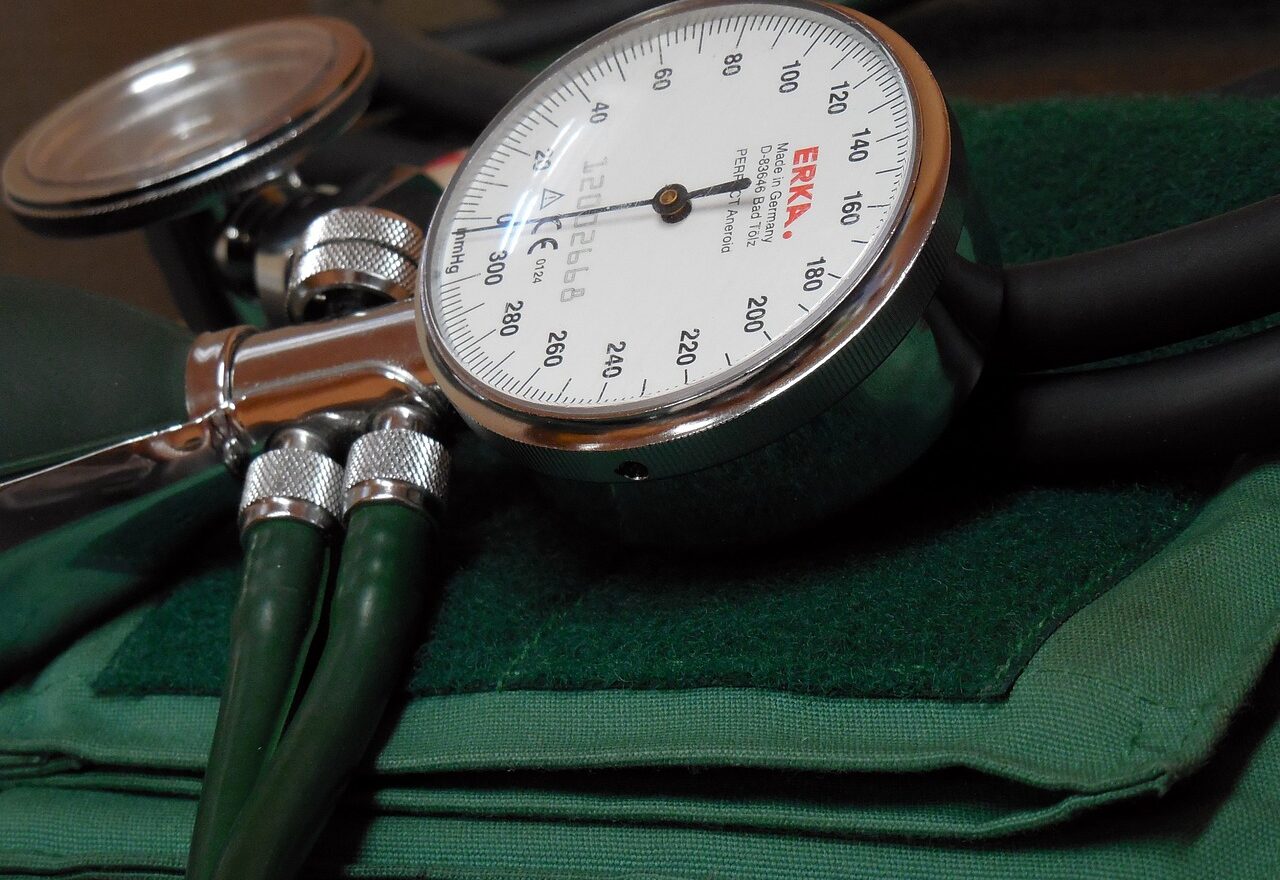Explore new and effective ways to medications for high blood pressure. Learn about the latest treatment options for hypertension and improve your cardiovascular health.
Table of Contents
Innovative Medications for High Blood Pressure: Exploring the Latest Breakthroughs
High blood pressure, also known as hypertension, is a prevalent health concern affecting millions worldwide. Left untreated, it can lead to serious complications such as heart disease, stroke, and kidney problems. While lifestyle changes such as a balanced diet and regular exercise play a vital role in managing blood pressure, innovative medications are continually being developed to provide effective treatment options. In this article, we delve into the latest breakthroughs in medications for high blood pressure. Our Facebook Page
1. ACE Inhibitor Derivatives
Angiotensin-converting enzyme (ACE) inhibitors have long been a cornerstone in hypertension treatment. Recent advancements have led to the development of ACE inhibitor derivatives that offer enhanced efficacy with fewer side effects. These derivatives target specific pathways involved in blood pressure regulation, resulting in improved blood pressure control and a reduced risk of adverse events.
2. SGLT-2 Inhibitors
Originally developed for treating diabetes, sodium-glucose cotransporter-2 (SGLT-2) inhibitors have gained attention for their blood pressure-lowering effects. These medications not only reduce blood glucose levels but also promote diuresis, leading to a decrease in blood volume and subsequently, blood pressure. Their dual mechanism of action makes SGLT-2 inhibitors a promising option for individuals with hypertension and diabetes.
3. Vasodilatory Peptides
In the realm of innovative medications, vasodilatory peptides have emerged as potential game-changers. These peptides work by relaxing blood vessels, allowing for improved blood flow and reduced pressure on arterial walls. Unlike traditional medications that target the renin-angiotensin-aldosterone system, vasodilatory peptides offer a novel approach to blood pressure management.
4. Mineralocorticoid Receptor Antagonists
Mineralocorticoid receptor antagonists have been traditionally used to manage heart failure, but recent research highlights their effectiveness in treating resistant hypertension. By blocking the effects of aldosterone, a hormone that contributes to sodium and fluid retention, these medications can lead to a decrease in blood volume and lower blood pressure levels. Their potential to tackle hard-to-control hypertension marks an important advancement.
5. Nitric Oxide Donors
Nitric oxide plays a crucial role in vasodilation and blood vessel health. Nitric oxide donors are a class of medications that release nitric oxide into the bloodstream, promoting relaxation of blood vessels and improving blood flow. These innovative medications offer a direct mechanism for reducing blood pressure and show promise in cases where traditional treatments might fall short.

6. Renin Inhibitors
Renin is a key enzyme involved in the regulation of blood pressure. Renin inhibitors are a relatively recent addition to the arsenal of antihypertensive medications. By blocking the action of renin, these medications interrupt the renin-angiotensin-aldosterone system, leading to vasodilation and decreased fluid retention. Renin inhibitors offer a targeted approach to blood pressure control and are especially beneficial for individuals who are intolerant to other classes of antihypertensive drugs.
7. Novel Beta-Blockers
Beta-blockers have been a staple in hypertension treatment for decades, but advancements in this class of medications continue to emerge. Novel beta-blockers with selective receptor targeting are designed to provide the benefits of blood pressure reduction without some of the side effects associated with traditional beta-blockers. These medications offer improved tolerability and efficacy, making them a valuable addition to the treatment options available.
8. Combination Therapies
Combination therapies involving multiple classes of antihypertensive medications have gained prominence for their ability to provide comprehensive blood pressure management. By targeting different pathways that contribute to hypertension, combination therapies can often achieve better results than single medications alone. Innovative combinations, tailored to individual patient needs, are being explored to create personalized treatment plans for optimal blood pressure control.
9. Precision Medicine Approaches
In the era of precision medicine, advancements in pharmacogenomics are shedding light on how an individual’s genetic makeup influences their response to medications. This knowledge allows healthcare providers to tailor treatment regimens based on a patient’s genetic profile, increasing the likelihood of success and minimizing potential side effects. Personalized medicine approaches are being integrated into hypertension management strategies, ushering in a new era of more effective and individualized treatment.
Mastering Hypertension: Exploring Cutting-Edge Medications for High Blood Pressure
10. Digital Health Solutions
In addition to pharmaceutical innovations, digital health solutions are transforming the way high blood pressure is managed. Mobile apps, wearable devices, and remote monitoring tools empower patients to track their blood pressure, receive personalized recommendations, and communicate with healthcare providers in real time. These technological advancements not only improve patient engagement but also enable timely interventions and adjustments to treatment plans for better blood pressure control.
11. RNA-based Therapies
Emerging technologies like RNA-based therapies are making waves in various medical fields, including hypertension treatment. Researchers are exploring the potential of using small interfering RNA (siRNA) to target specific genes involved in blood pressure regulation. By silencing these genes, RNA-based therapies have the potential to modulate blood pressure and offer a highly targeted approach to treatment.
12. Gut Microbiome Modulators
The gut microbiome, the community of microorganisms in our digestive tract, has been linked to various aspects of health, including blood pressure regulation. Innovative medications known as gut microbiome modulators aim to manipulate the composition of these microbes to positively influence blood pressure levels. As our understanding of the gut-brain-axis deepens, these medications could become a novel avenue for hypertension management.
13. Non-Invasive Neuromodulation
Non-invasive neuromodulation techniques, such as transcranial magnetic stimulation and vagus nerve stimulation, are being explored for their potential to regulate blood pressure. By targeting neural pathways that control blood pressure, these methods offer a non-pharmacological approach to hypertension treatment. They hold promise for individuals who are unable to tolerate or respond well to traditional medications.
14. Natural Compounds and Herbal Remedies
In recent years, there has been renewed interest in natural compounds and herbal remedies for their potential antihypertensive effects. Ingredients like hibiscus, garlic, and olive leaf extract have shown promising results in lowering blood pressure. While more research is needed to establish their efficacy and safety, these natural options provide an intriguing avenue for individuals seeking alternative treatments.
15. Continuous Glucose Monitoring Integration
The link between blood pressure and glucose metabolism is well-established. Innovations in medical technology have led to the integration of continuous glucose monitoring (CGM) devices with blood pressure management. These devices can provide real-time insights into how dietary choices, physical activity, and other factors impact both blood pressure and glucose levels. This holistic approach allows for more informed decision-making and better control of hypertension.
16. Artificial Intelligence and Predictive Analytics
Artificial intelligence (AI) and predictive analytics are revolutionizing healthcare by analyzing vast amounts of data to identify patterns and make predictions. In hypertension management, AI algorithms can analyze a patient’s medical history, lifestyle factors, and genetic information to predict their risk of developing high blood pressure or experiencing complications. This proactive approach allows for early intervention and personalized treatment plans.
17. Nanotechnology-based Therapies
Nanotechnology involves the manipulation of materials at the nanoscale, and it holds immense potential in drug delivery and targeted therapy. Researchers are exploring nanotechnology-based therapies for hypertension, where nanoparticles are designed to deliver medications directly to affected blood vessels. This approach increases drug efficacy, reduces side effects, and enhances patient compliance.
18. Telemedicine and Remote Care
Telemedicine has gained significant traction, especially in the wake of the COVID-19 pandemic. Remote monitoring of blood pressure, virtual consultations with healthcare providers, and medication management through telehealth platforms are becoming more common. Telemedicine not only improves access to care but also empowers patients to actively participate in their treatment journey from the comfort of their homes.
19. MicroRNA Modulation
MicroRNAs are small molecules that regulate gene expression. Researchers are investigating microRNA modulation as a potential avenue for hypertension treatment. By targeting specific microRNAs that are involved in blood pressure regulation, scientists aim to develop therapies that can restore balance to the cardiovascular system and promote healthy blood pressure levels.
20. Epigenetic Therapies
Epigenetics studies how gene expression is influenced by factors other than DNA sequence changes. Epigenetic therapies are being explored to address hypertension by modifying the way genes are expressed. These therapies have the potential to reverse harmful changes in gene expression that contribute to high blood pressure, offering a novel approach to long-term management.
21. Immune System Modulation
Recent research has shed light on the intricate connection between the immune system and blood pressure regulation. Immune cells and inflammation can play a role in hypertension development. Innovative medications are being designed to modulate the immune response and reduce inflammation, offering a unique approach to managing blood pressure and preventing complications.
22. Personalized Nutraceuticals
The concept of nutraceuticals, which are natural compounds with potential health benefits, is gaining traction in hypertension management. Personalized nutraceuticals are tailored to an individual’s specific health profile, taking into account factors such as genetics, dietary preferences, and medical history. These supplements can complement traditional treatments and provide a holistic approach to blood pressure control.
23. Cardiovascular Gene Therapy
Advancements in gene therapy are opening up new possibilities for treating various cardiovascular conditions, including hypertension. Researchers are exploring ways to introduce specific genes that regulate blood pressure into targeted cells. This approach holds the potential to correct underlying genetic factors contributing to hypertension and provide long-lasting benefits.
24. Hormone-based Therapies
Hormones play a vital role in blood pressure regulation. Innovative hormone-based therapies are being developed to modulate hormonal pathways that influence blood vessel constriction and fluid balance. By restoring hormonal balance, these therapies aim to bring blood pressure back to healthy levels and reduce the risk of cardiovascular complications.
25. Mind-Body Interventions
The mind-body connection is increasingly recognized as an important aspect of overall health, including blood pressure management. Mindfulness meditation, yoga, and relaxation techniques have shown promise in reducing stress and promoting relaxation, which can have a positive impact on blood pressure. Integrating these interventions into a comprehensive treatment plan can provide holistic benefits.
As our understanding of hypertension deepens, so does the range of innovative medications available for its management. These groundbreaking treatments, from ACE inhibitor derivatives to nitric oxide donors, provide new avenues for tackling high blood pressure effectively. It’s important to note that individual responses to these medications can vary, and consulting with a healthcare professional is essential before making any treatment decisions. With these advancements, the future looks promising for individuals striving to achieve optimal blood pressure levels and reduce their risk of cardiovascular complications. You may read more about benefits of Regular Exercise







Leave feedback about this